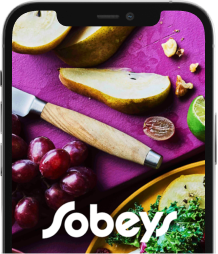Like an extra pair of hands in the kitchen, a slow cooker lets you walk away while it does all the work. Coming home to hearty, ready-to-eat braised meals at the end of the day makes life easier—but that’s not all this hard-working appliance can cook up. Here’s how to get the most out of it.
Buying How-Tos
With so many options out there, you can find just the right appliance to suit your cooking style. Here’s a quick breakdown of what to look for.
Inserts
- Many slow cookers come with a removable insert that can be washed and slipped back into the shell, where the heat source is located. (Older and some small versions don’t.) Materials vary, and each has its benefits. Cast-aluminum inserts are often non-stick and can be used on the stovetop for browning meats or vegetables, if desired. Ceramic and porcelain stoneware inserts distribute heat well and are less expensive. Stainless steel is lightweight and easy to clean. The choice is yours.
- Sizes range from 2 to 8 quarts (2 to 8 litres). For an average family of four, a 5- to 6-litre (5- to 6-quart) capacity is ideal, cooking four to eight servings of food at a time.
- Oval inserts are handy for large cuts of meat, such as pork shoulder, while round units are more compact and easier to store.
- Divided inserts let you cook multiple dishes at one time.
Lids
- A clear glass lid lets you see inside without interrupting the cooking process—otherwise, every peek adds 15 to 20 minutes to the total time.
- Make sure the lid fits snugly to keep heat and moisture in.
Settings
- Look for a programmable timer with an automatic warm function so your food won’t get cold if you’re running late.
- Simple settings of warm, low and high will do the job. Multi-function units offer a wider range of heat settings and cooking options, but they are more expensive.
Slow-Cooking Know-How
Yes, you can absolutely dump in your ingredients, set it and forget it. But keeping these tips in mind will make your slow cooker meals even more successful.
- Unless otherwise specified, defrost meat fully before adding it to the slow cooker. The only exception is fully cooked meat items, like meatballs.
- Chop root vegetables into about 1-inch (2.5 cm) pieces and place them on the bottom to help them cook through.
- Fill your slow cooker at least halfway so food cooks evenly, but no more than three-quarters full to prevent bubbling over.
- Preheated ingredients, such as warmed broth, can help bring your slow cooker up to temperature faster.
- Add dairy at the end of cooking so it doesn’t separate.
- Herbs and spices lose flavour when cooked for long periods, so add an extra sprinkle before serving.
- Perk up the look and taste of an all-brown dish, like a stew or pot roast, by adding fresh herbs, diced raw veggies or yogourt as a garnish.
To Brown or Not to Brown?
Many recipes suggest browning ingredients before adding them to the slow cooker. This technique enhances flavour, thanks to the Maillard reaction, which happens when meat and veggies hit hot, dry heat. But if you want to skip this step, you’ll save a bunch of time and your meal will be just as tasty.
Time Builds Taste
A master of “slow and low” cooking, the slow cooker works best for dishes that develop flavour over a long time at a low temperature. Here are some of our favourites.
- Maple-Bacon Slow Cooker Beans: Dried beans are great cooked in the slow cooker, especially when combined with molasses, onion, bacon and spices.
- Cornbread Topped Slow Cooker Chili: A super simple cornbread topper bakes as this ancho chili–spiced turkey, chorizo and white bean blend simmers away.
- Slow Cooker Beef Pot Roast: An economical cross rib pot roast, veggies and gravy make an uncomplicated yet complete Sunday dinner.
- Slow Cooker Sweet & Sour Meatballs: This easy family favourite gently cooks prepared meatballs in a tangy tomato-pineapple sauce.
- Slow Cooker Coq Au Vin: Don’t let the fancy name deter you—this simple recipe transforms chicken pieces, basic veggies, bacon and a splash of wine into a warming weeknight meal.
- Festive Slow Cooker Carrot Pudding: This moist cake is packed with sweet dates, carrots and spices, and makes a delicious, effortless party dessert.
It Can Make That?
Soups and stews aren’t all your slow cooker can do. Here are some exciting options.
-
- Slow Cooker Whole Chicken with Sage Butter & Onions: Finally, a succulent whole chicken for dinner that doesn’t tie you to the stove for hours!
- Grain-Free Crock Pot Cauliflower Stuffing: This grain- and gluten-free side has all the flavours of traditional stuffing without the bread.
- Slow Cooker Cheesy Garlic Corn Bread: Both cream cheese and cheddar take this garlicky, steamy cornbread to next-level deliciousness.
- Slow Cooker Chocolate Sweet Potato Cake: Mashed sweet potato is the secret to this moist, decadent chocolate cake topped with cream cheese icing.
- Slow Cooker Huevos Rancheros: This diner favourite, with layers of slow-cooked beans, tortillas and cheese, is topped with eggs shortly before serving.
- Slow Cooker Poached Salmon: Surprise! The steamy, low heat of your slow cooker is ideal for poaching fish. This recipe lets the lemon-wine sauce meld together first, and then it’s just a 20-minute cook before the rich, flavourful salmon is on your plate.
Slow Cookers vs. Other Appliances
Not sure about the difference between a slow cooker, a pressure cooker, a multi-cooker and a Dutch oven? Here are the basics on each.
| Appliance | How It Works | What It Cooks Best |
| Slow cooker | Steady, low heat gently cooks food inside a separate insert while the lid seals in heat and liquid, keeping everything moist and tender. | Porridge Sauces Soups Stews Curries |
| Pressure cooker | Whether stovetop or electric, this locked-lid unit builds up steam pressure inside, cooking food in a fraction of the standard time. | Rice Beans and pulses Tough cuts of meat |
| Multi-cooker (such as InstantPot®) | This offers multiple cooking methods, such as sautéing, slow cooking and pressure cooking, in a single appliance. | Almost anything; check the manufacturer’s guide for your model (some even have yogourt and jam settings). |
| Dutch oven | A heavy oven-safe pot with a tight-fitting lid, a Dutch oven is cookware—not an appliance. But its ability to go from stove top to oven makes it ideal for many recipes. | Pot pie Roasts Stews Anything braised. |






